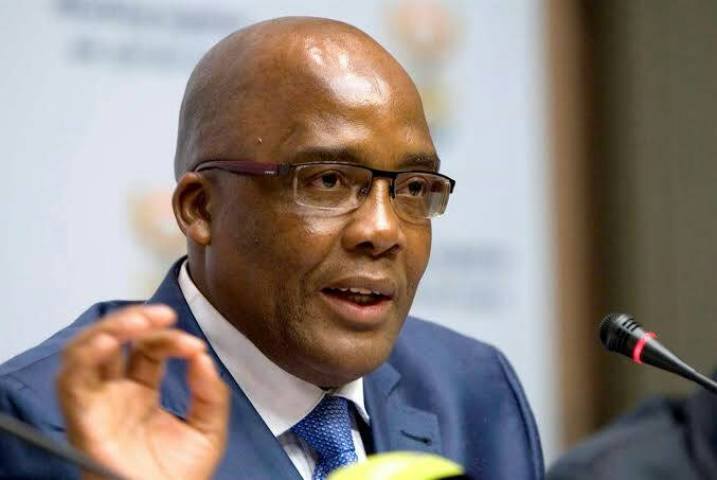Motsoaledi Calls for Global Action to Strengthen Health Systems and Fund UHC
At the centre of Dr Motsoaledi’s speech was South Africa’s commitment to universal health coverage through its ambitious National Health Insurance (NHI) system.

- Country:
- South Africa
South Africa’s Health Minister, Dr Aaron Motsoaledi, has renewed calls for countries around the world to prioritise investment in health systems, strengthen global health partnerships, and adopt innovative financing strategies to ensure universal health coverage (UHC).
Speaking at the second meeting of the G20 Health Working Group in Ballito, KwaZulu-Natal, Dr Motsoaledi delivered a passionate keynote address to fellow health leaders, policy experts, and international delegates. The three-day meeting is being held under the theme “Accelerating Health Equity, Solidarity, and Universal Coverage”.
Championing Universal Health Coverage Through NHI
At the centre of Dr Motsoaledi’s speech was South Africa’s commitment to universal health coverage through its ambitious National Health Insurance (NHI) system. The NHI is designed to transform healthcare delivery in the country by ensuring that all South Africans, regardless of income, have access to quality health services without suffering financial hardship.
“In South Africa, we are actively pursuing transformation to achieve universal health coverage through our NHI system,” the Minister said. “The NHI is designed to provide financial protection for all, ensuring that access to quality healthcare is not dependent on one’s ability to pay. It will also assist in the efficient utilisation of our resources by pooling funds and strategically purchasing services.”
WHO Data Underscores Urgency
Dr Motsoaledi cited World Health Organisation (WHO) statistics indicating that before the COVID-19 pandemic, progress had been made in shielding people from catastrophic health spending. However, the pandemic reversed many of those gains, pushing nearly 100 million people globally back into financial distress due to health-related costs.
“This stark reality shows us why the global community must redouble efforts to protect the vulnerable,” the Minister said. “The NHI is our practical demonstration of South Africa’s commitment to leaving no one behind and building a resilient, equitable health system.”
A Moral Imperative
Quoting the late Professor Paul Farmer, a renowned global health advocate and anthropologist, Dr Motsoaledi emphasised the moral imperative to treat health as a human right, not a privilege.
“‘The idea that some lives matter less is the root of all that is wrong with the world,’” he quoted. “We implore all G20 members to champion increased public financing of health systems. This is not merely a budgetary issue—it’s a fundamental investment in our collective future.”
Dr Motsoaledi stressed that G20 nations, which represent over 80% of the world’s GDP and 60% of the global population, have a significant role to play in ensuring that health becomes a global priority.
Confronting Health Inequities and NCDs
The Minister drew attention to persistent health inequities—particularly in low and middle-income countries—and called for stronger multilateral collaboration to address these challenges. He specifically pointed to the growing burden of non-communicable diseases (NCDs), including heart disease, cancer, diabetes, and chronic respiratory illnesses.
“Health inequities are undermining our collective progress. The upcoming United Nations High-Level Meeting on NCDs is a critical moment for us to galvanise action,” he said.
Dr Motsoaledi advocated for stronger regulation of unhealthy food marketing, increased funding for emergency health services, and a global commitment to eliminate cervical cancer—the only cancer that is fully preventable with current technology and vaccines.
A co-sponsored side event on cervical cancer elimination is being held alongside the main G20 Health Working Group meeting, further underscoring the urgency of action in this area.
Beyond Dialogue: A Call to Action
“Now is the time to move beyond dialogue and commit to concrete steps,” Dr Motsoaledi urged. “South Africa is committed to collaborating with all G20 members to achieve our shared health goals. Let us work together to ensure that health remains a priority, not a commodity, especially during these unstable economic times.”
He also stressed that health challenges do not respect national borders, and that collective responsibility and solidarity are needed to confront future global health emergencies.
South Africa Leading the G20 Agenda
South Africa, which assumed the G20 Presidency in December, is hosting various ministerial and working group meetings throughout the year across the country. These sessions are building momentum toward the G20 Leaders’ Summit set to take place in November.
Key topics under discussion include not only health, but also employment, trade, tourism, education, and the digital economy. As the only African member of the G20, South Africa has pledged to use its leadership role to elevate African health priorities and advocate for more inclusive global governance.
The G20 is composed of 19 countries—Argentina, Australia, Brazil, Canada, China, France, Germany, India, Indonesia, Italy, Japan, South Korea, Mexico, Russia, Saudi Arabia, South Africa, Türkiye, the United Kingdom, and the United States—along with two regional entities: the European Union and the African Union.
A Vision for the Future
Dr Motsoaledi closed his address by reaffirming that equitable health access is both a human right and a pathway to sustainable development. “Health is the foundation of every nation’s prosperity. Let us not be remembered for failing to act when it mattered most. The time is now.”
As the world emerges from the COVID-19 pandemic and braces for future health threats, the G20’s decisions on health investment, collaboration, and innovation could chart a new course toward a more resilient, equitable global health system.










